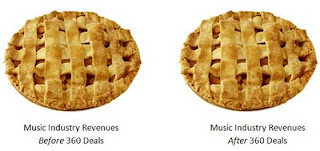 ommuters.
ommuters.The commercial-free radio service now costs less for the basic package, but more channels can be added on. The lower prices will attract new users, yet the options will maximize profits. Both of the services still exist exclusive of each other, but now they share many channels in order to cut down on broadcasting costs. In the process of my research of this event, I made two comments on posts regarding the issue. The first is in Digital Noise by Matt Rosoff, where we discuss the reasons for, and responses to the merge. The second comment was on Wired's post by Eliot Van Buskirk where we discuss more the business side of the merge. For the sake of convenience, I have included my comments below.
Digital Noise: Sirius-XM channel merge begins next week
Satellite radio has truly become a product that does not inspire half-hearted users. Those who use and enjoy satellite radio do it with a passion, and seem to listen to it almost exclusively. While this creates a great and loyal consumer base, these types of customers are wary of change, especially when it comes to fraternizing, even merging with the “enemy.” Sirius users chose Sirius for a reason, and XM users chose XM for a reason. I think this is why I sense a lot of discontentment among the posters here. Regardless of the reactions of some of the users, the reasoning behind the merge was sound. It does not make sense for there to be two different 50’s stations for example. Those channels that are unique can now be purchased a la carte, if the user so chooses. They now have a lower subscription price as well, so there are a few extra dollars freed-up for possible extra features. Often those who are vocal are the only ones who care.
The merge between XM and Sirius, however was not all encompassing, they remain, in some points of view two very different services. The inability of both to make a profit necessitates more than a casual relationship between the two. They need to truly merge services and products and customer bases to create a solidified company, or else they will not survive against all of the other options that media consumers have today. It is possible that this is where Sirius XM is heading, but the move needs to be sooner rather than later to ensure that music lovers have the variety of options that they have enjoyed for so long.
Wired: Sirius, XM Complete Merger
While it is beneficial to the consumer, both past and present, that the new Sirius XM service has lowered its basic subscription prices, it does seem that the new a la carte options, and the premium options that are available are a way for Sirius XM to gauge a li
 ttle bit of extra cash out of their customers. However, this may not be such a bad thing for users to subscribe to, if they want to see satellite radio continue to broadcast. Aaron Poehler was right in saying that this merge was necessary to keep satellite radio afloat, in spite of having almost 19 million customers. According to an LA Times article about the merge (http://www.latimes.com/entertainment/la-et-satradio13-2008nov13,0,3375813.story), the company does hope to break even next quarter, but reported a 4.8 billion dollar loss in the 3rd quarter of 2008. The new type of radios and the unique services may be exactly what it takes to help this company finally break even after both companies have consistently lost money from their very inception in 2001.
ttle bit of extra cash out of their customers. However, this may not be such a bad thing for users to subscribe to, if they want to see satellite radio continue to broadcast. Aaron Poehler was right in saying that this merge was necessary to keep satellite radio afloat, in spite of having almost 19 million customers. According to an LA Times article about the merge (http://www.latimes.com/entertainment/la-et-satradio13-2008nov13,0,3375813.story), the company does hope to break even next quarter, but reported a 4.8 billion dollar loss in the 3rd quarter of 2008. The new type of radios and the unique services may be exactly what it takes to help this company finally break even after both companies have consistently lost money from their very inception in 2001.In reference to the discussion of whether or not they have a monopoly on the market, it is important to realize that while these companies have been each other’s main competitors for years, they both secondarily have competed against every other form of car or home entertainment. They have been keeping each other down, while iPod car adapters, web streaming radio, and Bluetooth headsets have emerged as other options for valuable car-time. Them coming together in this way and joining forces, merging content, and creating greater value can only be considered a monopoly if consumers had no other options, which they clearly do. They’ve created an entertainment service where it is no longer important which satellite radio company is better, what’s important is that consumers have options.




